
Team Starling
Welfare Support team: When you may need extra help
8th January 2024
By: Flo Lloyd-Hughes
12th April 2023
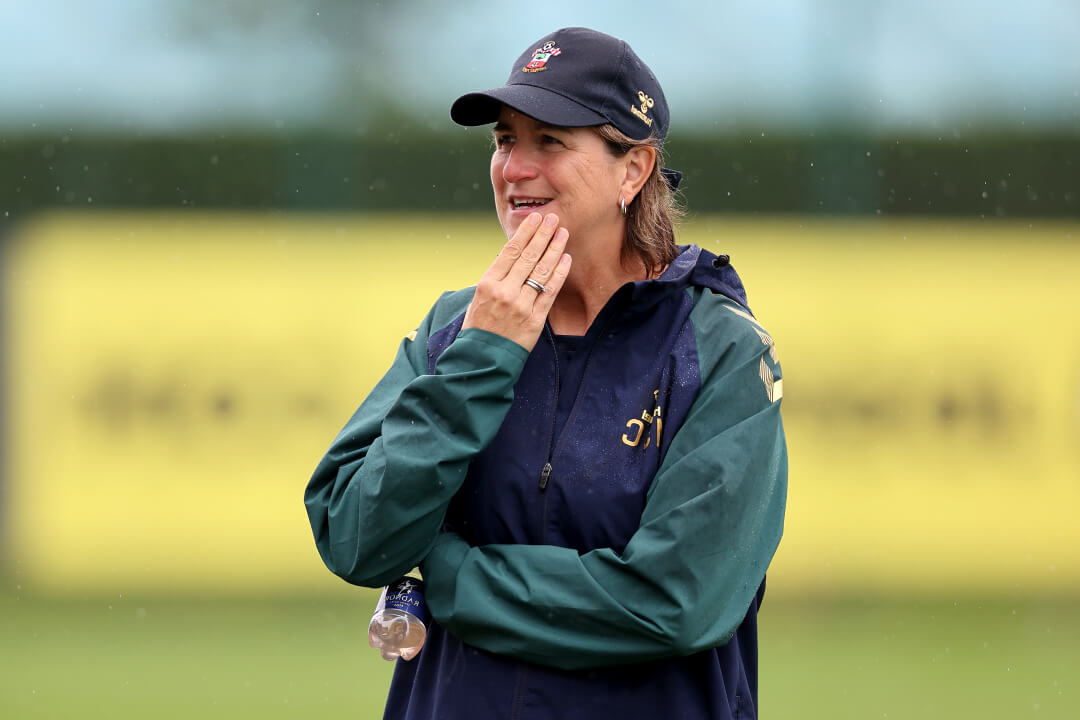
Flo Lloyd-Hughes, sports journalist and broadcaster, interviews Marieanne Spacey-Cale, who has won five Women’s FA Cups and is Head of Women and Girls’ Football/Head Coach at Southampton FC
“Being able to have conversations with stronger, opinionated women as a young teenager helped me”. And today? Marieanne Spacey-Cale is more than just a football coach. The former England international is a trailblazer for the women’s game.
At the peak of her playing days, Marieanne was known as one of the best midfielders in England. She won five Women’s FA Cups, seven League Cups and four league titles while playing for two of the biggest clubs in England, Arsenal and Fulham, throughout the 80s and 90s.
Now, she is better known as the face of Southampton FC Women. Since 2018, she’s been the head of women and girls football at the club and head coach of the thriving women’s team.
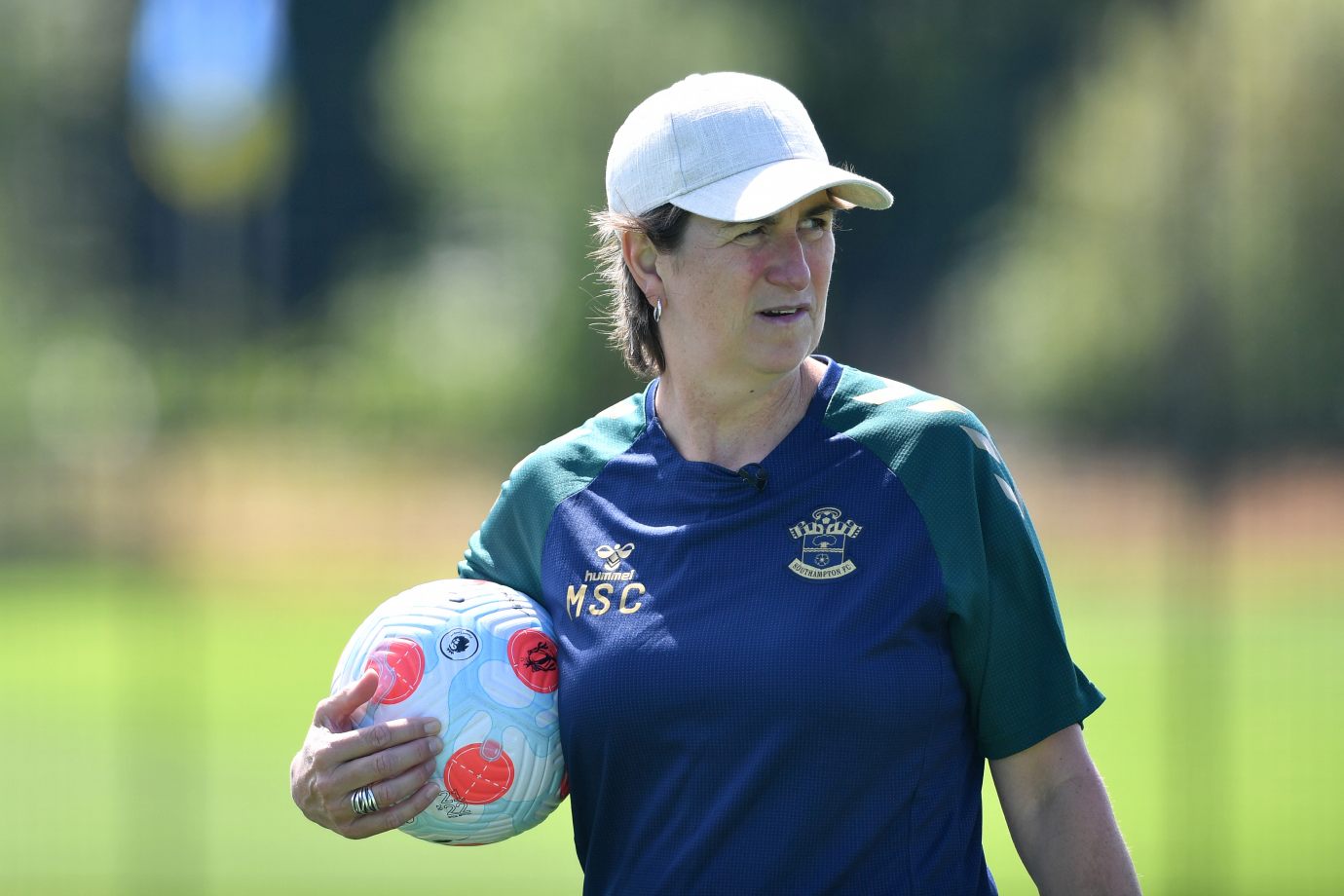
As one of the leading players of her generation, Marianne played nearly 100 times for her country and was part of the first ever England team to play at a FIFA Women’s World Cup in 1995.
Marieanne was destined to wear an England shirt from an early age, in fact her grandfather was convinced that she would one day play for her country; he even predicted it when she was just two years old.
“I don’t know where that came from or whether that’s just a family myth that everyone kind of pulls out every Christmas”, she says jokingly from her office at Southampton FC Women’s Staplewood Campus complex.
Her love of football definitely isn’t a myth. It started at age six when she went to go and watch Chelsea with her father and uncle – and she was absolutely transfixed.
She spent hours kicking the ball at a local park and putting pressure on her school to allow girls to play football. Eventually, a teacher allowed her and a few others to use a few benches in the sports hall for goals and she began to play regularly. She later joined a team in London and by the time she was aged 13 she was playing senior women’s football.
“It taught me so many life skills. I’m quite shy but football gave me the confidence to go into a room with older people – older, strong women – and hold my own.”
Marieanne and her teammates had to battle for everything, but what they did with limited resources was phenomenal. The modern women’s game is a far cry from the environment she began her career in. And she believes record-breaking attendances, viewing figures and the Lionesses’ Euro success have shown that the women’s game has “caught up to where it should be” – but she believes there’s no limit to what the next generation can achieve.
She balanced being an amateur with full-time work. When she needed to travel abroad for England duty, she would have to use up annual leave. But she has never seen these obstacles as a barrier.
“I don’t see challenges. I just see opportunities”, she says. “When I was playing, there was a lot of negativity about women in football – and I used that as a driver. Even with all the negativity I faced, I still believed that I could play for England and I still believed that my teammates around me were good enough.
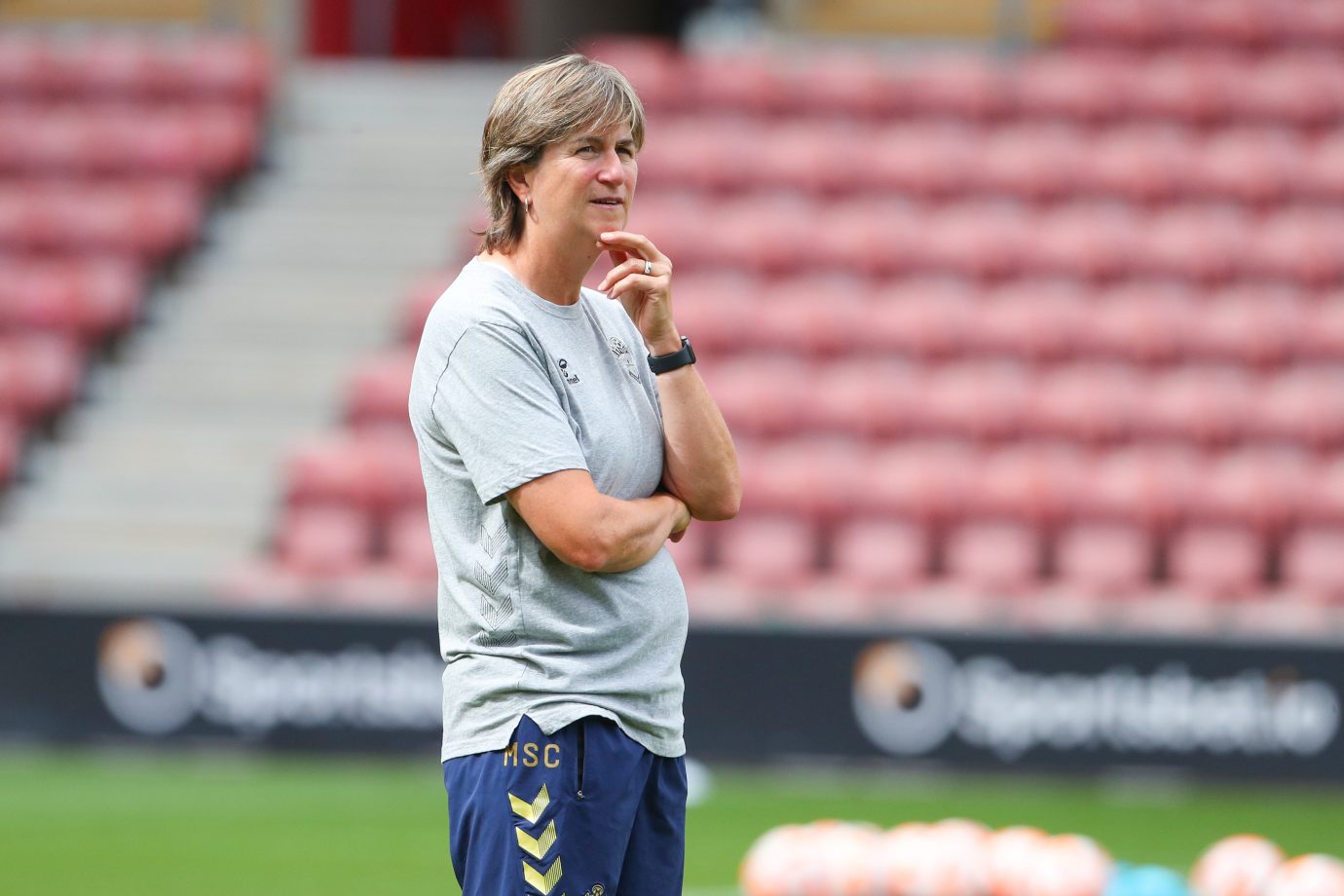
“Every time I went on a coaching course, it was generally male dominated. But again, I always believed that I had every right to be there. I know the game, I’ve played the game, I understand the game and the reason I’m here is because I want to learn even more about the game.”
In 2009, Marieanne was inducted in the National Football Museum’s Hall of Fame in Manchester. But her influence didn’t stop there, when she moved into coaching she continued to have a huge impact. Marieanne was assistant manager of the Lionesses when they won bronze at the 2015 Women’s World Cup, a game-changing moment for the women’s game in England.
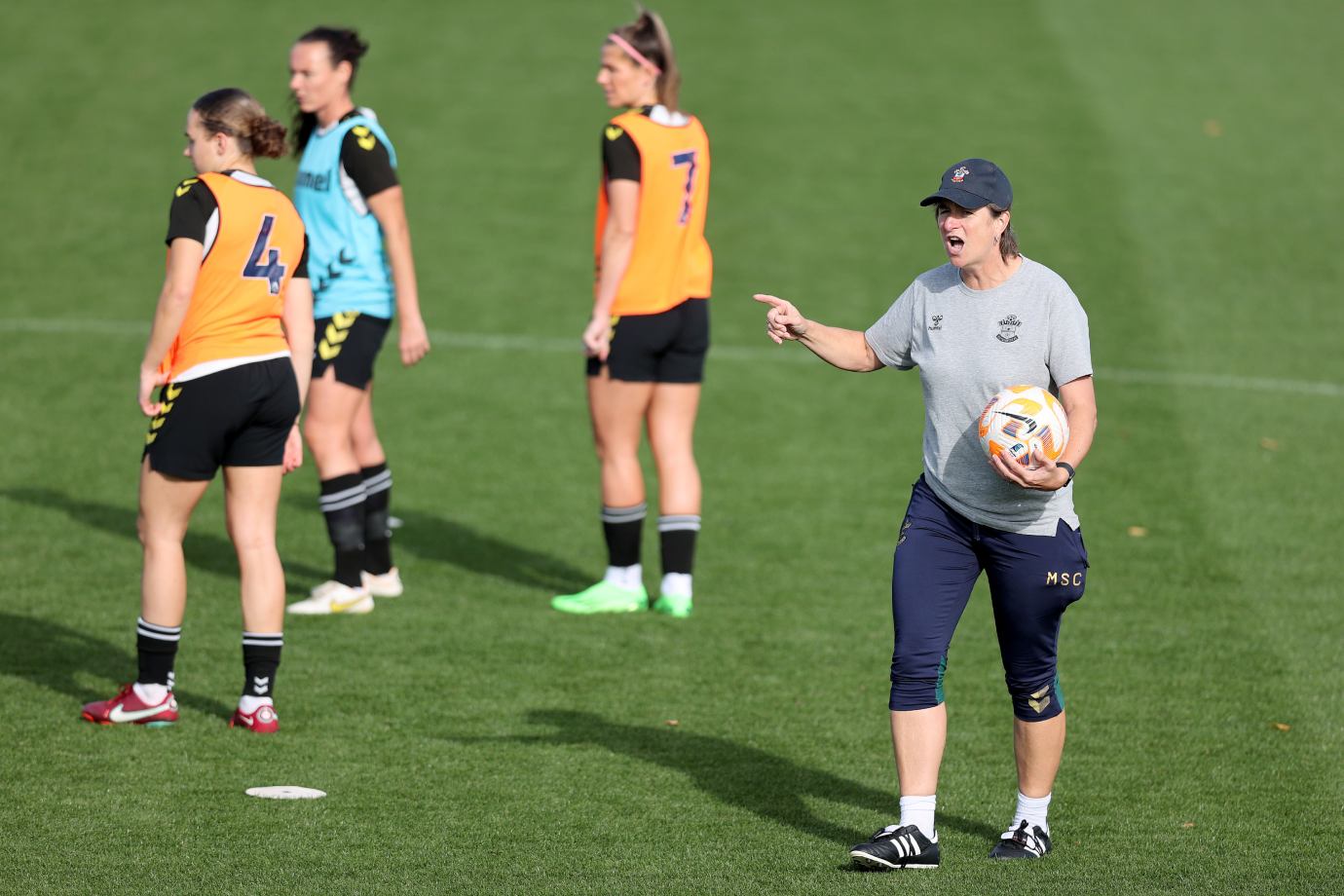
At Southampton, she’s overseen the club’s rise from the fifth-tier of the English women’s football pyramid up to the second-tier Championship: the second-highest level of women’s football in England. After securing promotion in a playoff last summer, the club made the move to full-time.
She acknowledges there are still opportunities to win over naysayers of the women’s game: “We know there are people who still really don’t want women to play football and are very much anti women’s football. We’ve also got very proactive and positive supporters – and that’s showing in the number of fans that are turning out week in week out at games
“Then we’ve got a few in the middle. Now, some of them, you will never ever change their mind, but the others are the ones you want to influence. They have daughters, sons, granddaughters, grandchildren, who they one day may take to football.”
Southampton are one of the few clubs in the Championship that stage all of their home games at the club’s main stadium, St Mary’s. The women’s team also has access to exactly the same training and changing facilities as the men’s team.
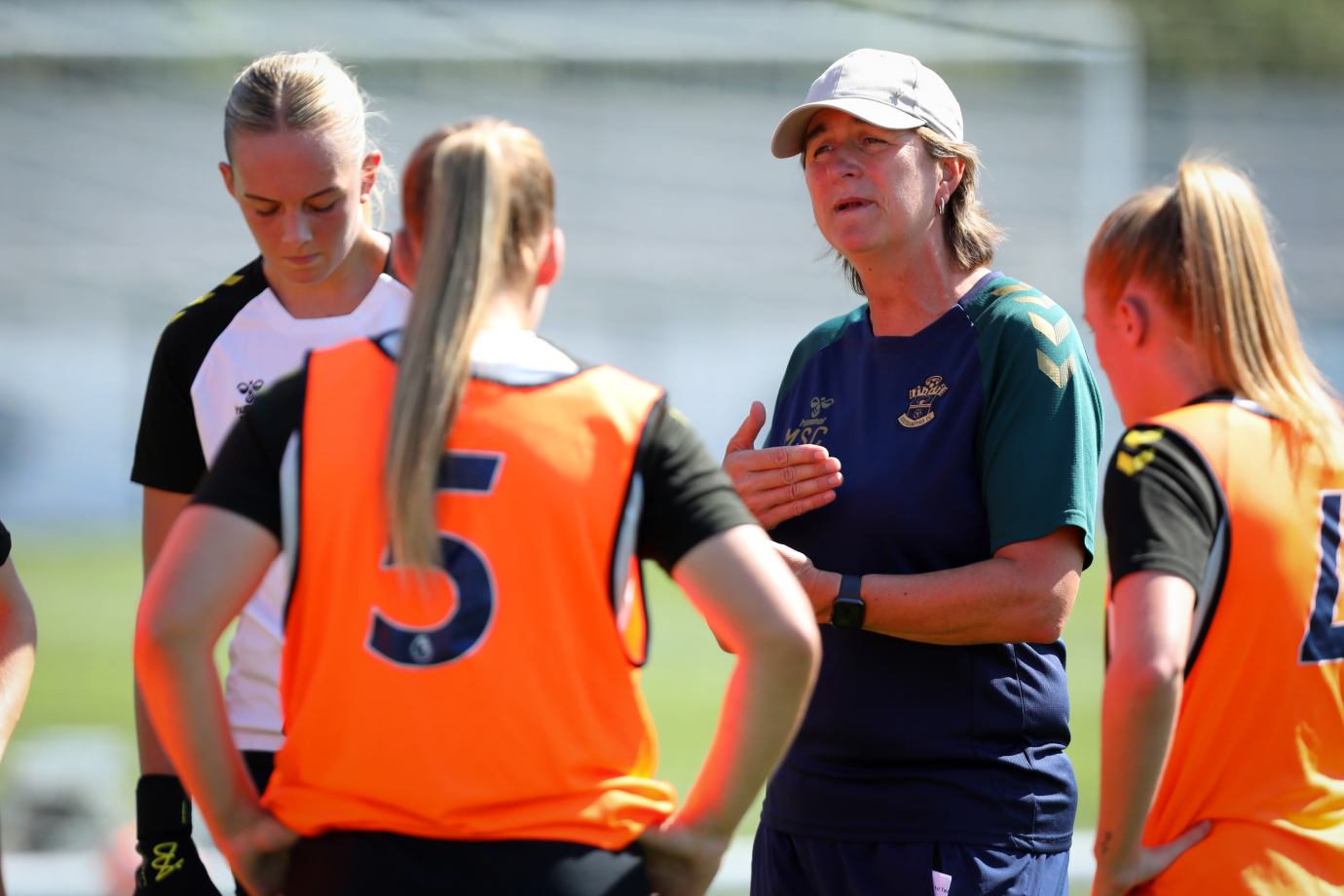
“We don’t just work in isolation – there is a strategy for everything. The club is about potential into excellence. The players we’ve got who are under 12, under 14 – they’re our future players. So we want to retain that talent and help develop them”.
So what’s next? Marianne is clear about what she wants to achieve at Southampton: “We want to be in the Super League (WSL) – and we’re not apologising for that ambition”.
Starling is the official principal partner of Southampton FC Women. Read more about our work in women’s football.

Team Starling
8th January 2024

Team Starling
22nd November 2023

Team Starling
25th September 2023

Money Truths
2nd July 2025

Money Truths
1st July 2025

Money Truths
29th May 2025